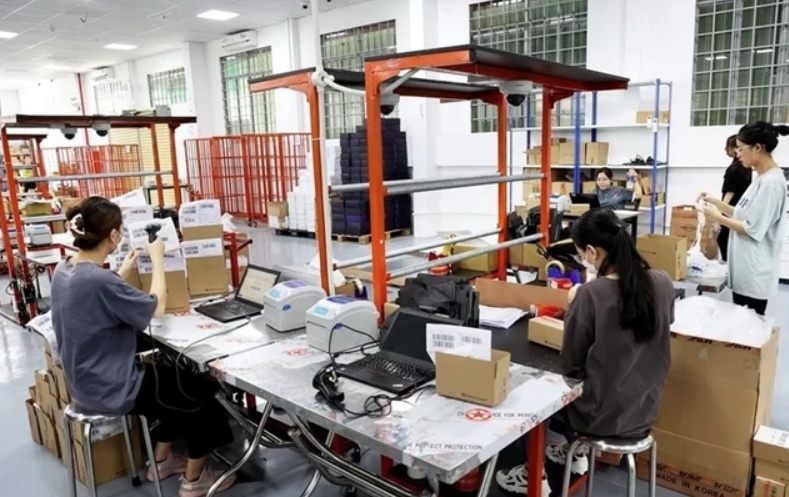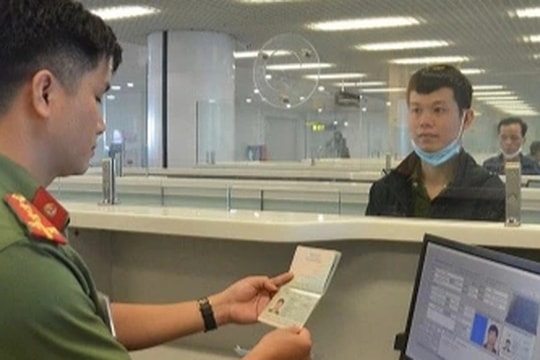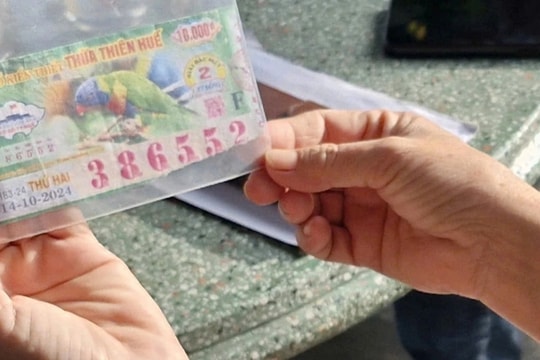It has been projected by 2025, the country’s e-commerce market will surpass US$25 billion, according to a report from the Ministry of Industry and Trade (MoIT).
The report said 116 foreign suppliers have registered, declared and paid taxes through the electronic portal for foreign suppliers, contributing to a total revenue of VND19.8 trillion. Direct revenue from declarations via the portal this year has reached VND8.7 trillion, marking a 26% increase compared to the same period last year.
Notable platforms, such as Google, Meta (Facebook), Microsoft, TikTok, Netflix and Apple, are included in this figure.
Over the past few years, e-commerce in Vietnam has established itself as a leader in the digital economy. Despite ongoing global and regional challenges, Vietnam's e-commerce sector has continued to grow impressively, with annual growth rates averaging 18-25%.
In 2023, e-commerce saw a growth rate of 25%, with a revenue of US$20.5 billion. It is projected that in 2024, the market will exceed US$25 billion.
In addition to domestic e-commerce platforms like Shopee, TikTok Shop, Lazada, Tiki and Sendo, the market is now seeing the entry of cross-border platforms such as Temu and Shein. These platforms are also required to declare and pay taxes as foreign suppliers.
To accelerate infrastructure development, the MoIT has partnered with various ministries, local authorities, and businesses to establish standards for trade infrastructure, with a particular focus on e-commerce infrastructure. These efforts are aimed at supporting the digital economy and contributing to the creation of new development spaces.
The ministry has also launched the Vietnam Electronic Contract Development Hub, designed to help organisations, businesses, and individuals manage and process electronic contracts. In addition, they have developed and implemented KeyPay, a platform that facilitates the development of a national e-commerce payment system and infrastructure to support public administration services. KeyPay has assisted several government departments in overcoming challenges related to implementing online payments for public services.
KeyPay further contributes to the development of e-commerce by promoting G2B (government-to-business) and G2C (government-to-consumer) transactions and fostering the adoption of cashless payments among individuals and businesses.
To further support the digital economy, the MoIT continues to review and guide businesses and individuals with e-commerce websites or applications to ensure compliance with Decree 85/2021/ND-CP. They also provide assistance to businesses in upgrading their online portals to meet new regulatory requirements.
Additionally, the ministry supports businesses in applying digital technologies and e-commerce in their operations, while also offering solutions for managing export and import documentation (ecosys.gov.vn). Efforts are also being made to promote domestic product consumption and cross-border e-commerce exports.
The ministry is preparing to present a plan for the national e-commerce system's development for the 2026-2030 period to the Prime Minister. It also plans to facilitate data sharing between ministries and localities and collaborate with the National Steering Committee 389, the Ministry of Public Security (MPS), and other agencies to combat counterfeit, fake, and substandard goods.
Ongoing efforts include enhancing cooperation with market management agencies, the Cybersecurity and High-Tech Crime Department under the MPS and other governmental bodies to inspect, monitor, and ensure adherence to e-commerce regulations.
Furthermore, the ministry is committed to raising awareness about fraud and unethical practices in e-commerce and organising initiatives to further promote e-commerce and the digital economy with events such as National Online Shopping Week and e-commerce advisory programmes for students across the country continue to be a key focus.























.png)

